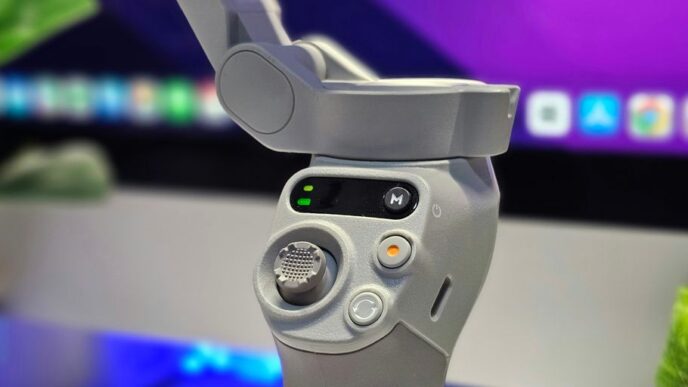In an age where science and technology are evolving rapidly, the concept of “biohacking” has emerged as a game-changer for those seeking to optimize their health and performance. But biohacking is more than just taking supplements or hitting the gym harder – it’s about understanding how our bodies work on a molecular level, and using that knowledge to unlock our full potential. In this blog post, we’ll explore the broader implications of biohacking in modern society, from its impact on healthcare and medicine to its potential role in shaping the future of humanity itself.
Introduction to Biohacking
In the past decade, the term “biohacking” has become popularized by Silicon Valley entrepreneurs and tech workers seeking an edge in productivity. However, biohacking is not just for the wealthy and privileged. It is a movement that anyone can participate in to take control of their own health and fitness.
Biohacking is about using science and technology to hack your biology making changes to your diet, lifestyle, and environment to optimize your health and performance. This could mean anything from wearing a fitness tracker to monitor your activity levels, to following a specific diet plan to improve your gut health, to taking supplements to boost your energy levels.
While there are many different approaches to biohacking, one of the most important things to remember is that everyone is different. What works for one person may not work for another. The key is to experiment and find what works best for you as an individual.
If you’re interested in learning more about biohacking, there are lots of resources available online. You can start by reading articles or watching videos from experts in the field. Once you have a better understanding of the basics, you can begin experimenting with different techniques and strategies to see what works best for you.
What is Biohacking?
Biohacking is the process of using science and technology to upgrade the human body. It’s an emerging field that is rapidly gaining popularity, particularly in Silicon Valley.
There are many different approaches to biohacking, but they all share a common goal: to optimize the human body for Peak performance. This can be achieved through a variety of methods, including diet, supplements, exercise, sleep, and stress management.
The beauty of biohacking is that it’s customizable. Everyone has different goals and needs, so there’s no one-size-fits-all approach. You can tailor your biohacking routine to your specific goals and needs.
Whether you want to boost your energy levels, improve your cognitive function, or simply feel better overall, biohacking can help you achieve your objectives. And as more people learn about the benefits of biohacking, it’s likely that this trend will continue to grow.
Different Types of Biohacking
There are many different types of biohacking, each with its own unique set of benefits and risks. Here are some of the most popular types of biohacking:
Nutritional Biohacking: This type of biohacking involves manipulating your diet to achieve optimal health and performance. There are a number of ways to do this, including eliminating certain foods from your diet, eating more nutritious foods, and taking supplements.
Exercise Biohacking: This type of biohacking involves using exercise to improve your health and performance. This can be done by following a specific exercise routine, using specialized equipment, or taking advantage of new technologies that allow you to track and improve your workout.
Cognitive Biohacking: This type of biohacking involve using techniques to improve your cognitive performance. This can include things like meditation, brain training exercises, and taking supplements that improve brain function.
Sleep Biohacking: This type of biohacking involve using techniques to improve your sleep quality. This can be done by following a sleep schedule, using specific sleep aids, or making changes to your environment to promote better sleep.
Stress Management Biohacking: This type of biohacking involve using techniques to reduce stress in your life. This can be done by practicing relaxation techniques, making lifestyle changes, or taking supplements that help reduce stress levels.
Benefits of Biohacking
Biohacking is a term that is becoming increasingly popular in the health and fitness world. But what exactly is biohacking? And what are the benefits of biohacking?
Simply put, biohacking is the process of using science and technology to hack your biology – to optimize your health and performance. This can be done through various means, including diet, supplements, exercise, sleep, and stress management.
There are many benefits to biohacking. Perhaps the most obvious is that it can help you feel better and perform better. When you understand how your body works and what it needs to function optimally, you can make choices that support your health and well-being.
Biohacking can also help you save money on health care costs. By taking a proactive approach to your health, you can avoid costly medical procedures down the line. In addition, by optimizing your health now, you may be able to avoid chronic diseases later in life.
Biohacking can help you live a longer, healthier life. When you make choices that support your health today, you set yourself up for a lifetime of good health. So if you’re looking for ways to feel better and live better, consider biohacking!
Risks and Challenges of Biohacking
Biohacking is not without its risks and challenges. As with any new technology or trend, there are always potential dangers to consider. Here are some of the risks and challenges associated with biohacking:
Safety concerns: One of the biggest concerns with biohacking is safety. When you mess with your body’s natural systems, there is always the potential for something to go wrong. There have been reports of people suffering serious health complications after trying to hack their bodies in DIY fashion. This is why it’s important to only use safe, tested methods if you’re going to experiment with biohacking.
Ethical concerns: Another big concern with biohacking is ethics. Some people argue that tampering with our bodies in this way is unnatural and even morally wrong. Others worry about the implications of giving people an unfair advantage through biohacking (e.g., athletes using banned performance-enhancing substances). These are valid concerns that need to be considered before moving forward with any biohacking endeavors.
Privacy concerns: Another risk associated with biohacking is loss of privacy. As we become more reliant on technology to monitor and track our health data, we may be inadvertently sharing sensitive information about ourselves that we would prefer to keep private. This could have serious implications for our personal relationships, employment, and insurance coverage, among other things.
Security concerns: A final risk to consider is the security of our data when it comes to biohacking. As technology advances, hackers may find more and more ways to break into our devices or access our health data without our knowledge. Protecting ourselves from cyber threats should be a top priority for anyone considering biohacking.
Ethical Considerations & Social Implications
When it comes to biohacking, there are a few ethical considerations and social implications to take into account. First and foremost, as with any type of hacking, biohacking can be used for good or bad. For example, someone could hack into a hospital’s computer system and change a patient’s vital signs in order to cause harm. Or, someone could use biohacking techniques to try to illegally obtain information or money.
In addition, there are also ethical considerations around self-experimentation. When experimenting on oneself, there is always the potential for serious injury or even death. So before embarking on any type of biohacking experiment, it’s important to weigh the risks and benefits carefully.
There are social implications to consider as well. As biohacking becomes more popular and mainstream, there is a risk that people will start using it as a way to gain an unfair advantage over others. For example, if someone was able to hack their own body in order to increase their strength or stamina, they would have a clear advantage over someone who didn’t have access to those same technologies.
So while biohacking can be an exciting and empowering way to take control of one’s health and wellbeing, it’s important to be aware of the potential risks and implications before diving in headfirst.
Conclusion
Biohacking can be a powerful tool for improving your health and performance, but it’s important to remember that biohacking should not be viewed as a quick fix. Rather, its broader implications involve understanding the importance of making sustainable lifestyle changes in order to improve one’s overall health and well-being. As biohacking becomes more commonplace in modern society, it is up to each individual to determine how they want to use this technology responsibly for their own benefit.













